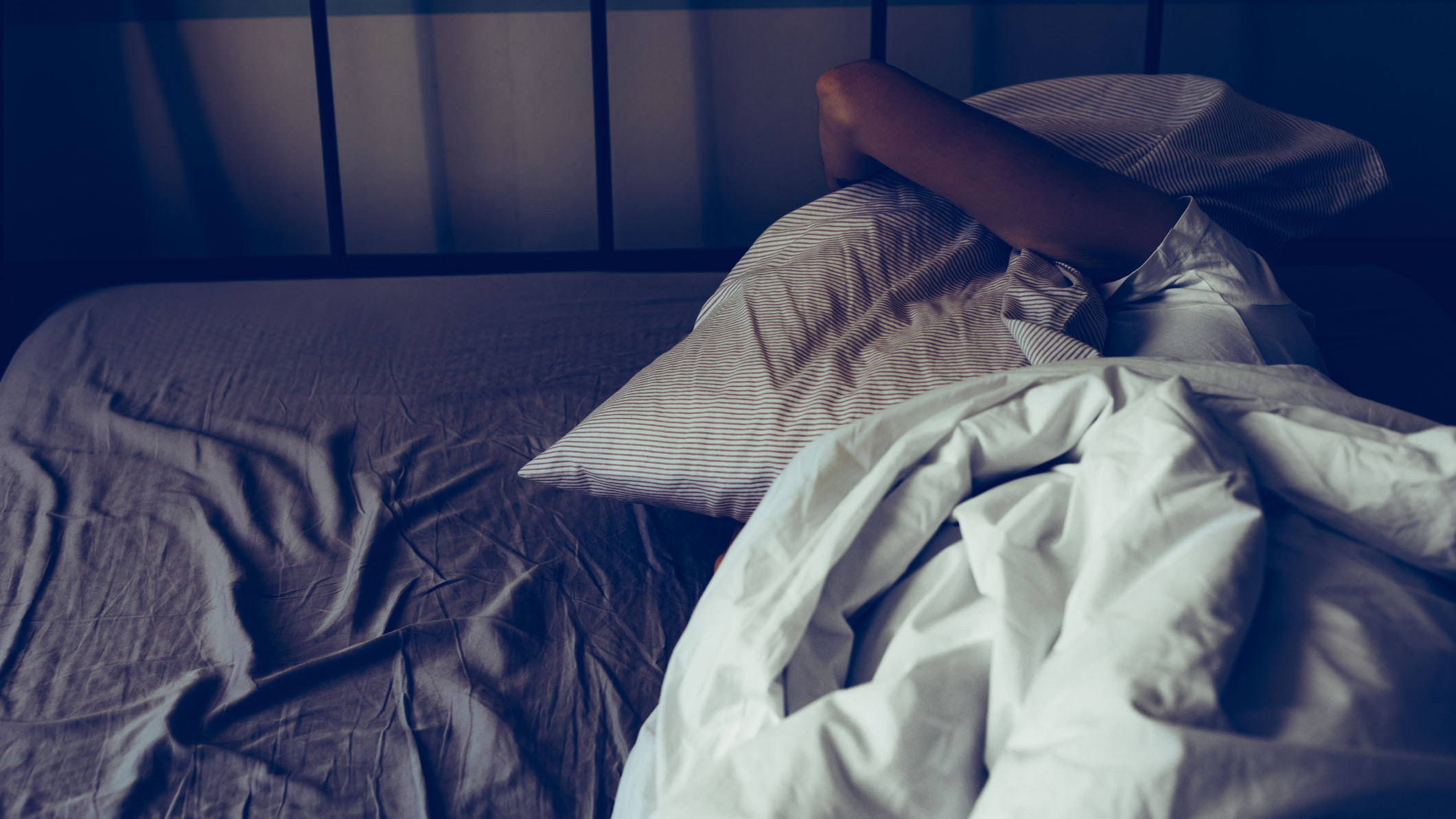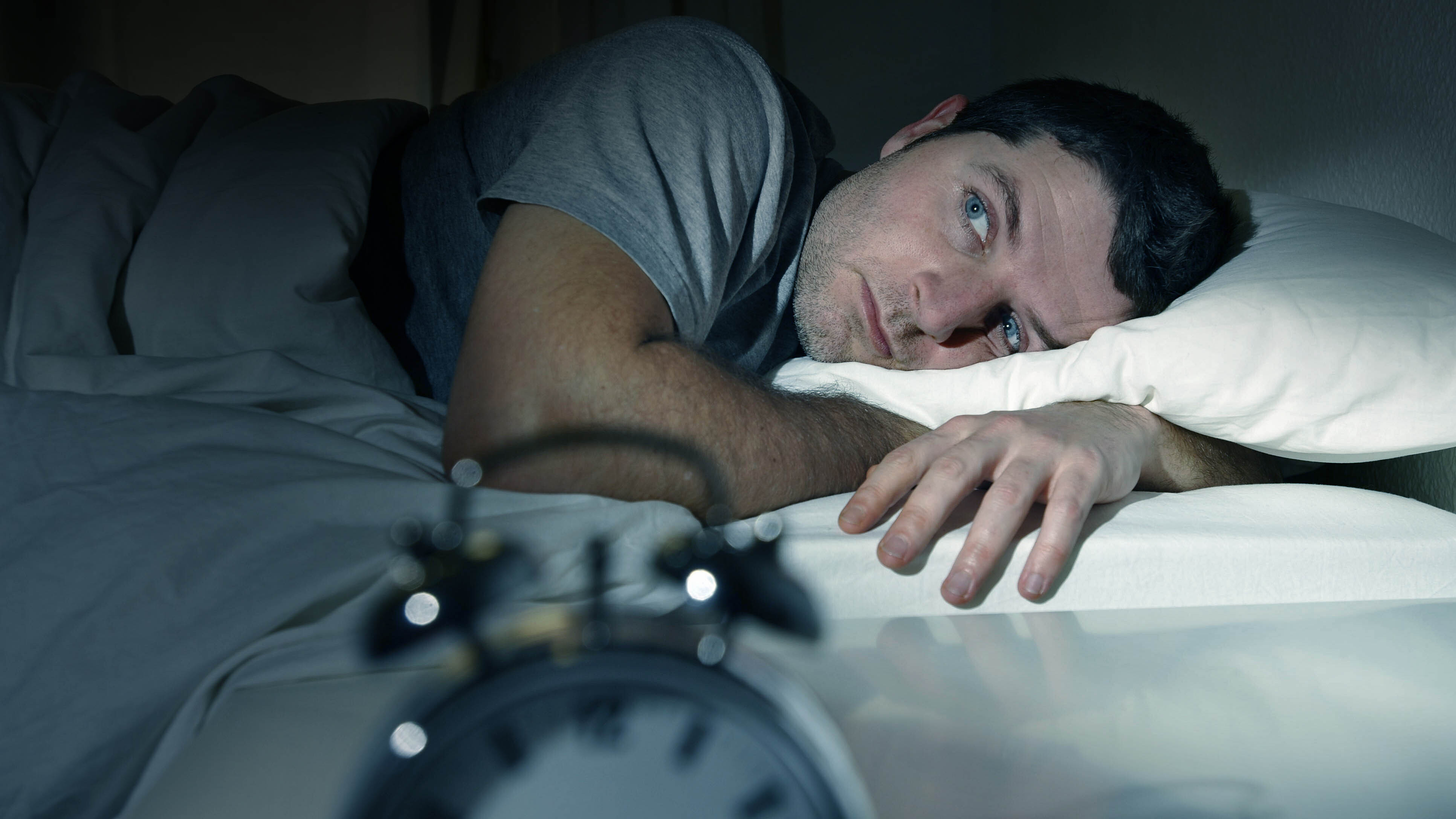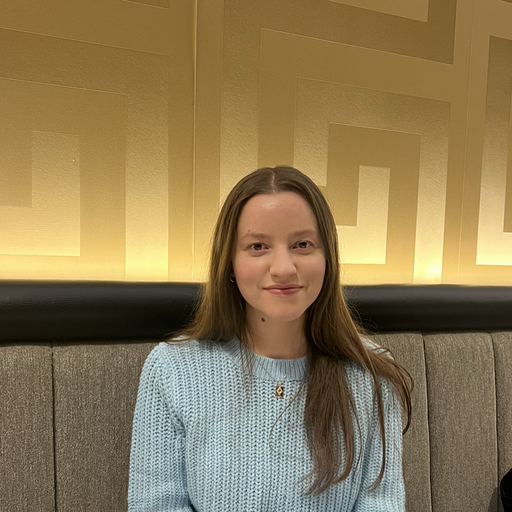I'm a sleep writer — here's what I do when I can't sleep
These are the simple tricks I use when I’m having trouble sleeping

Sometimes, when you need to get plenty of rest, falling asleep becomes the most impossible task in the world. It seems the longer you lie there, the longer you think about how much sleep you’re missing — and soon your bed is no longer a relaxing refuge, but a place you negatively associate as a space where you can't sleep.
Fortunately, there are ways to help you out of this rut and to fall asleep faster and easier again. As a sleep writer, I’ve come across lots of hacks, tips and techniques, but only a few actually work – and I’ve compiled them here so that you can turn to them on those nights when you can't sleep.
I'll also share the number one thing you shouldn't do if you can't get to sleep – and I bet you it's something you do every night at the moment. So if you want to know what to do when you can't sleep, these are my top tips...
What to do when you can’t sleep – my top tips
1. I read a boring book or do a jigsaw puzzle
Research tells us that reading a book not only improves sleep quality but sleep duration too. I've experienced this first-hand as reading a book helps me doze off pretty quickly.
The trick is to read something dull, says Claire Davies, Sleep Editor for Tom's Guide: "Don't go for a gripping thriller or epic fantasy book if you love reading those genres – they'll excite and stimulate your brain and you'll be wide awake for longer. Instead, choose something so disinteresting to you that it literally bores you to sleep."
How and where you read is also important. Claire advises getting up out of bed to read in a different room (if you have one). I also get over-stimulated when reading on my phone, so I'd suggest sticking to paper books or switching to Night Mode if you're reading on a device. Basically, don't expose yourself to blue light as research suggests it can disrupt the production of melatonin (the sleepy hormone), so you'll be unable to sleep.
2. I fold laundry in a dimly lit room
Do something boring and monotonous that’s not too difficult or stimulating is an excellent way to coax your brain into a sleepy state. Jeff Bezos and Bill Gates both do the dishes every single night – these are two of the richest people in the world, yet they choose to hand wash their own dishes.
Why? Because, as science tell us, doing mundane tasks in a mindful way relaxes the brain, which in turn helps us get ready for sleep. Sleep then comes easier and faster once we're in bed.
I like to sort and fold laundry in a separate room to the one I sleep in, but I make sure to keep the lighting dim because I don't want to stop all that lovely melatonin production going on at night.
3. I relax with Dr. Andrew Weil’s 4-7-8 method
The 4 7 8 method is a breathing method developed by Dr Andrew Weil, Founder and Director of the University of Arizona Center for Integrative Medicine. Dr Weil describes the 4 7 8 sleep method as “a natural tranquilliser for the nervous system”, so if you can't sleep, this is definitely one to try when you get back in bed.
The 4 7 8 method works by awakening the parasympathetic nervous system (PSNS), which is responsible for your body’s ‘rest and digest’ functions, and the more nights you practise it, the more effective it becomes.
4. I follow a guided sleep meditation
A few weeks ago, I had a week of having to get up earlier than my usual wake-up time. This normally causes me anxiety, which in turn means I can't sleep. My Sleep Editor Claire suggested some meditation and breathing exercises, so I tried listening to a guided sleep meditation video with 23 million views on YouTube. I didn't think it would work at first, but half way into the week I was falling asleep much faster.
I hadn't heard of guided sleep meditations before then either. They're basically a video or audio track designed to relax your brain and body so that you're in a more receptive mindset for sleep. While you can listen to guided sleep meditations while sat on the floor or couch, I recommend doing this one while in bed as you might fall asleep quickly and without warning.
5. I'll also do a full body scan when I can't sleep
Relieving tension in the body physically relaxes you for sleep and body scans are a brilliant way to achieve this. Some are guided while others are self-guided, but both involve focusing on one body part at a time (from your shoulders to your little toes) to allow any lingering stress and tension melt away.
Here’s the body scan method that I use: Lay down, close your eyes and get comfortable. Slow your breathing and inhale, bring your awareness to your little toe. On the exhale, allow any tension to leave your toes.
Now repeat that by focusing on every single part of your body in turn – every finger, every toe... the whole lot. By the time you get around your whole body, you should be well on your way to sleep.
What you should never do if you can’t sleep

When you can't sleep, there is one golden rule to follow: do not stay in bed. This is a main tenant of CBTI (Cognitive Behavioural Therapy for Insomnia) and it's important because otherwise, if you remain in bed thinking 'why can't I sleep', you create a negative association between your bed and not sleeping. Cortisol levels will also rise, which will make it even harder for you to drift off.
CBTi practitioners advise getting up and going into a different room (or a different part of your bedroom if you live in a studio apartment) to break that negative association. After all, you want your bed to be a haven of relaxation and rest, not a sleep torture chamber.
Leave the bedroom and go into another quiet, dimly lit room. Once you’ve left your bed and dimmed the lights, do something mundane for 20 minutes or so, then return to your bed to sleep.
How long should it take you to fall asleep?
If you’re don't nod off as soon as your head touches the pillow, you're completely normal. In fact, the only people who fall asleep in under one minute are those who are very sleep deprived. In fact, it takes up to an average of 20 to 30 minutes for a person to fall asleep, so don't get too worked up if you're 15 minutes in and not feeling sleepy.
However, if it takes you longer than 30 minutes, there could be some personal or environmental issues at play. A good starting point is to establish a good bedtime routine that gets your mind and body ready for sleep. Bedtime routines are an important pillow of sleep hygiene, and can include the following:
- Washing your face and brushing your teeth
- Dimming the bedroom lights and playing soothing sounds
- Doing some light stretches to relieve tension and pain
- Try some gentle breath work to relax your whole self
Tom's Guide's Sleep editor Claire adds: "You don't need to spend longer than an hour on your bedtime routine, otherwise it will start to take over your evening and it will create anxiety around going to sleep. Keep it simple, relaxed and an enjoyable way to wind down.
"Stick to your routine every night and start it at the same time each evening if you can, as over time your brain will recognize these 'sleep cues', making it easier and faster for you to fall asleep."
Sleep hygiene tips to helps you fall asleep fast
A good bedtime routine doesn’t just prepare you for bed, it also mentally and physically prepares you for the next morning. Sometimes, I find it difficult to go to sleep if I’m thinking about the busy morning routine that’s waiting for me.
To stop me from thinking about all the things I need to do the next day, I write out to-do-lists and reminders for the next morning to give me peace of mind. This is especially helpful if you have a bad case of the Sunday Scaries.
- Wake up and wind down at similar hours each day and night
- Invest in the best mattress for your body and sleep style
- Spritz a relaxing room spray and use it as a sleep cue
- Use a hot water bottle to help you sleep on colder nights
- Avoid drinking alcohol and caffeine after midday
Sign up to get the BEST of Tom's Guide direct to your inbox.
Get instant access to breaking news, the hottest reviews, great deals and helpful tips.

Frances Daniels is a PPA-accredited journalist and Sleep Staff Writer at Tom's Guide with an MA in Magazine Journalism from Cardiff University. Her role includes covering mattress and sleep news and writing sleep product reviews and buyer's guides, including our Best Hybrid Mattress 2025 guide. She is hugely interested in the relationship between good sleep and overall health, interviewing a wide array of mattress and sleep experts to create well-informed articles about important topics such as nutrition, sleep disorders (from sleep apnea to night terrors), lucid dreaming, sleep hygiene, and mattress care. She is also our specialist on mattress toppers — producing mattress topper reviews and taking care of our Best Mattress Toppers 2025 guide — and takes the lead on all content related to fiberglass-free mattresses for a clean, non-toxic sleep. Outside of Tom's Guide, she has written for Ideal Home, Homes & Gardens, and Marie Claire.

